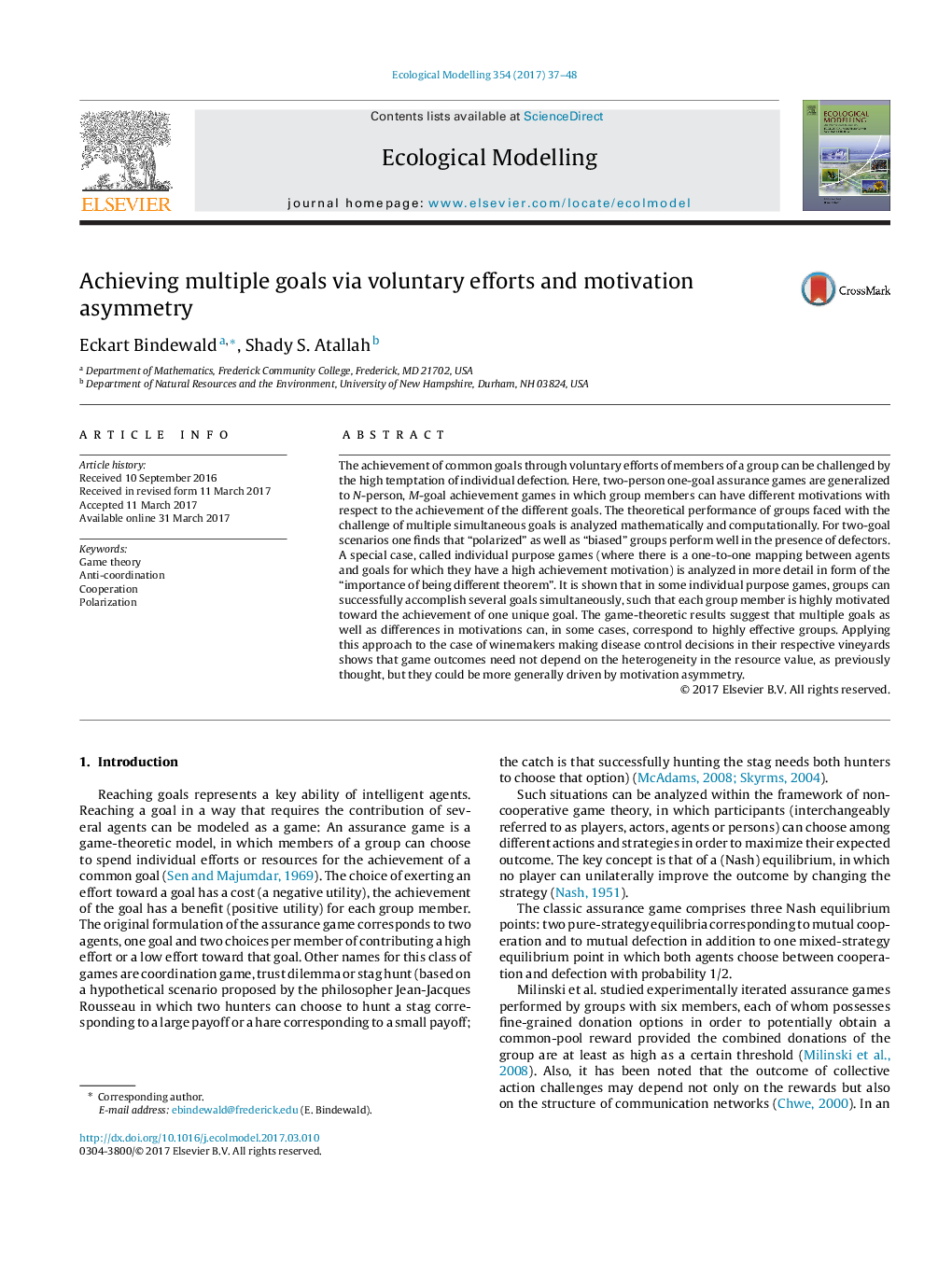| Article ID | Journal | Published Year | Pages | File Type |
|---|---|---|---|---|
| 5742185 | Ecological Modelling | 2017 | 12 Pages |
â¢Novel type of “game” with multiple agents challenged to achieve multiple goals.â¢Theorem shows that groups with diverse member motivations can be highly effective.â¢Performed computer simulations for groups of sizes 2-5 under the challenge of 1-3 goals.â¢Motivations of the group members dramatically influence the effectiveness of groups.â¢Example of winemakers controlling the spread of grapevine leafroll disease.â¢This work could inspire voluntary efforts in cases where traditional approaches did not succeed.
The achievement of common goals through voluntary efforts of members of a group can be challenged by the high temptation of individual defection. Here, two-person one-goal assurance games are generalized to N-person, M-goal achievement games in which group members can have different motivations with respect to the achievement of the different goals. The theoretical performance of groups faced with the challenge of multiple simultaneous goals is analyzed mathematically and computationally. For two-goal scenarios one finds that “polarized” as well as “biased” groups perform well in the presence of defectors. A special case, called individual purpose games (where there is a one-to-one mapping between agents and goals for which they have a high achievement motivation) is analyzed in more detail in form of the “importance of being different theorem”. It is shown that in some individual purpose games, groups can successfully accomplish several goals simultaneously, such that each group member is highly motivated toward the achievement of one unique goal. The game-theoretic results suggest that multiple goals as well as differences in motivations can, in some cases, correspond to highly effective groups. Applying this approach to the case of winemakers making disease control decisions in their respective vineyards shows that game outcomes need not depend on the heterogeneity in the resource value, as previously thought, but they could be more generally driven by motivation asymmetry.
